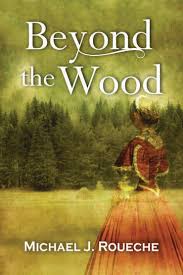
Set both during the American Civil War and “not long ago,” Beyond the Wood is the story of Union soldier Hand Gragg and his several times great grandson, Reid. For generations the men of the Gragg family have made a pilgrimage to Gainesville , Virginia
Hank Gragg left his home in Virginia
Betsy is shocked when she receives a letter from both her dead husband, and the Union soldier who unbelievably got the letter to her. She is even more shocked to read that the Union soldier is Hank, the man she hastily rejected but never stopped loving. The letter is addressed to “Ellie” her late husband’s pet name for her, so Hank does not realize who she is. They begin corresponding secretly, Hank never realizing the widow is Betsy, and Betsy waging an inward war between her growing love for Hank and her desire for a comfortable life offered by one Mr. Walthrope. Finally the war is over, Hank is determined to meet this widow Ellie, whose letters helped him survive the deaths of brothers and friends, and Mr. Walthrope is uncovered as a dangerous murderer, all in the final climax of the long-age (somewhat predictable) story.
In the end, Reid understands his father’s great desire for his son to make the sacred journey to Virginia
There were a lot of secondary characters in Hank’s story that seemed charming, but I did not really feel that I got to know them well enough. Much of the dialogue was very verbose and maybe a little overly dramatic. Overall, a decent read for someone who enjoys the era of the American Civil War, as there was some pretty good imagery, and the reader also picks up on some of the mixed feelings people really must have had about the war.
No comments:
Post a Comment